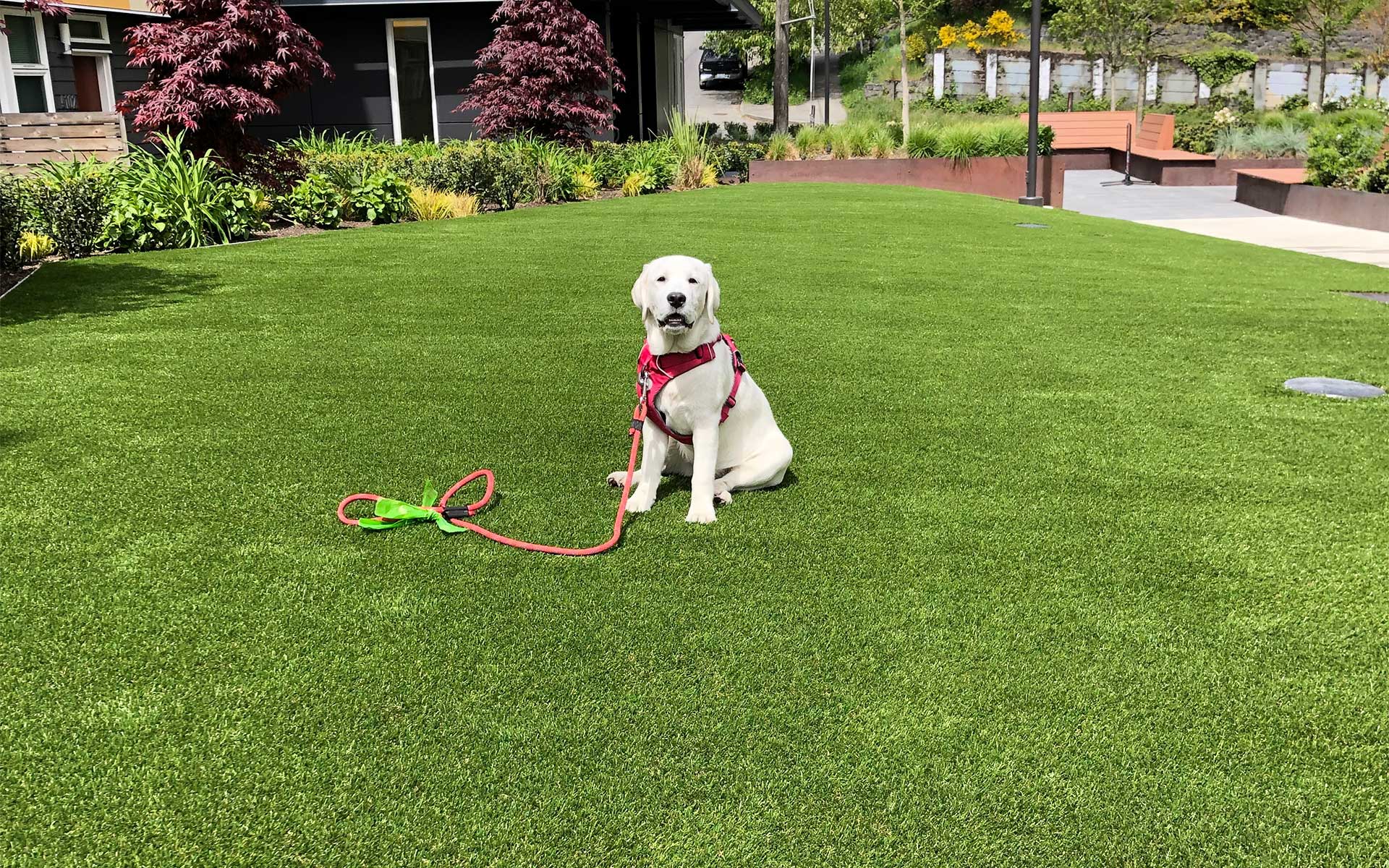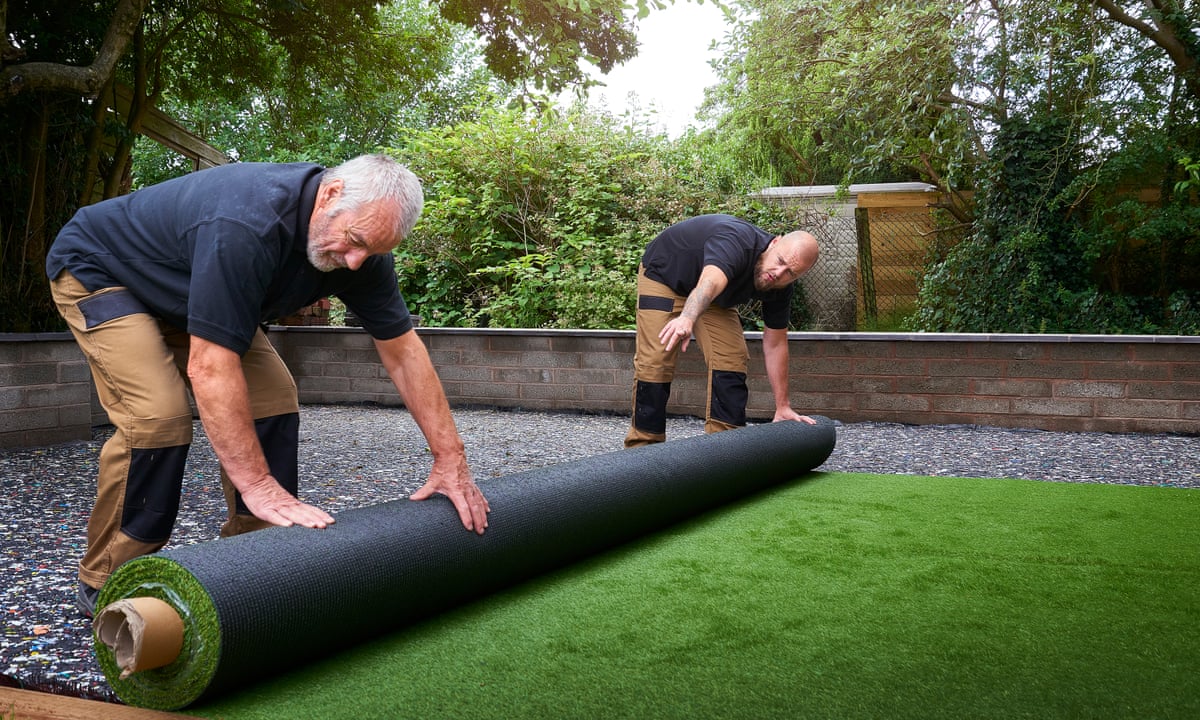Expert Arizona Turf Installation Services for Home and Commercial Use
Expert Arizona Turf Installation Services for Home and Commercial Use
Blog Article
Delve Into the Environmental Conveniences of Opting for Synthetic Grass Solutions
The fostering of man-made turf remedies offers an engaging chance to resolve pressing ecological challenges. By significantly reducing water usage and reducing the application of unsafe chemicals, these options not only advertise lasting landscape design however likewise protect local ecosystems. Moreover, the lower carbon impact linked with lowered maintenance activities adds to a more sustainable technique to land monitoring. The ramifications of these advantages expand beyond mere preservation efforts, raising questions regarding their long-lasting influence on habitat preservation and total eco-friendly equilibrium. Checking out these dimensions discloses a complicated interaction worth thinking about.
Water Preservation Advantages
One of the most considerable benefits of artificial grass is its ability to conserve water. In contrast, man-made lawn does not require watering, significantly lowering the overall demand for water resources.
By getting rid of the demand for regular watering, fabricated turf adds to sustainable landscape methods and helps mitigate the environmental impact of excessive water consumption. The preservation of water expands to the decrease of drainage, which can lead to soil erosion and river air pollution.
Additionally, the setup of synthetic grass permits property owners and municipalities to allot water resources a lot more efficiently, concentrating on essential usages such as drinking water and farming. The change towards artificial grass not only promotes liable water usage yet additionally aligns with broader environmental goals targeted at preserving all-natural resources.
As neighborhoods significantly prioritize sustainability, the water conservation benefits of man-made grass present a compelling situation for its fostering in business and domestic landscape design jobs.
Lowered Chemical Use
The change to synthetic grass significantly decreases the reliance on chemical treatments typically made use of in all-natural grass maintenance. Traditional grass administration normally entails the application of herbicides, chemicals, and plant foods to promote growth and control insects. These chemicals can present threats to human health and wellness, neighborhood wildlife, and the environment, adding to dirt and water contamination.
In comparison, artificial grass eliminates the demand for these harmful materials. Once installed, it needs minimal maintenance, primarily including routine cleaning and seldom infill replenishment. This decrease in chemical use not just profits the instant atmosphere however additionally contributes to wider environmental security. By decreasing the launch of artificial substances right into the environment, synthetic grass promotes healthier soil and water supply.
Additionally, the lack of chemical drainage connected with synthetic grass installments assists shield regional rivers from contamination, supporting aquatic life and keeping biodiversity. Phoenix turf companies. As communities progressively prioritize sustainable practices, deciding for synthetic grass offers a practical remedy that straightens with ecological conservation objectives. Via this change, building proprietors can take pleasure in lavish green spaces without jeopardizing eco-friendly wellness, leading the way for a more sustainable future
Lower Carbon Footprint

Furthermore, the installation of synthetic grass can result in significant water preservation. Natural lawns need substantial quantities of water for irrigation, which not just includes to the carbon footprint connected with water extraction and treatment yet likewise strains local water resources. In comparison, synthetic grass needs marginal maintenance, needing no watering, anchor thereby significantly decreasing water use and its linked energy expenses.
Furthermore, the longevity of synthetic grass adds to its lower carbon effect. With a lifespan of as much as 15 years or even more, the demand for regular substitutes is diminished, causing much less waste and reduced power intake in production and disposing of typical grass choices. Overall, synthetic grass presents a sustainable choice for eco mindful landscape design.
Habitat Conservation
Habitat preservation is a vital factor to consider in the dispute over landscape design selections, specifically when comparing fabricated lawn to all-natural grass. Natural lawn lawns frequently need comprehensive maintenance, including the usage of fertilizers, chemicals, and herbicides, which can detrimentally influence neighborhood ecosystems. These chemicals can seep into the soil and rivers, damaging native vegetation and animals and interrupting local habitats.
In contrast, synthetic grass offers an opportunity to lower the eco-friendly footprint of landscape design. By choosing artificial turf, property owners can reduce the disturbance of all-natural habitats related to typical grass treatment practices. Synthetic grass eliminates the need for harmful chemicals, therefore safeguarding nearby wildlife and maintaining the integrity of bordering communities. Additionally, the installation my response of synthetic grass can cause the conversion of previous lawn locations right into even more biodiverse landscapes, such as pollinator yards or indigenous plant areas, which can sustain regional wildlife.
Ultimately, the transition to synthetic grass not only conserves water and minimizes upkeep efforts yet also cultivates an extra harmonious partnership between human activities and the all-natural environment, promoting habitat conservation in the procedure.
Long-Term Sustainability
Lasting sustainability is a vital consider evaluating the benefits of fabricated grass over typical turf lawns. Among the most considerable advantages of synthetic grass is its longevity; it can last approximately 15-20 years with very little upkeep, whereas all-natural yard requires constant reseeding and replacement. This longevity reduces the requirement helpful resources for constant sources, such as water, plant foods, and chemicals, which are vital for maintaining a healthy and balanced turf lawn.
Additionally, man-made grass adds to a reduction in carbon exhausts related to yard treatment equipment. Traditional grass usually require gas-powered mowers, trimmers, and blowers, every one of which add to air pollution. Arizona turf. On the other hand, man-made turf gets rid of the demand for such tools, advertising a cleaner environment
Moreover, the production of synthetic grass significantly makes use of recycled materials, enhancing its sustainability profile. As suppliers embrace environmentally friendly methods, the environmental impact of man-made turf remains to reduce.

Conclusion
The adoption of fabricated grass services offers substantial ecological benefits, including substantial water preservation, lowered dependence on unsafe chemicals, and a lower carbon impact. Additionally, synthetic grass aids in protecting all-natural environments by decreasing land disruption and promoting long-lasting sustainability through using long lasting materials. Jointly, these factors underscore the possibility of man-made lawn to add positively to ecological wellness and offer a feasible alternative to standard landscaping techniques in a significantly resource-conscious world.
In contrast, fabricated grass does not need watering, considerably minimizing the total demand for water resources. By minimizing the launch of artificial substances into the ecosystem, synthetic grass advertises healthier soil and water systems.
In addition, the installation of synthetic lawn can result in substantial water preservation. In comparison, synthetic turf requires very little upkeep, requiring no watering, thus significantly lowering water usage and its linked energy expenses.

Report this page